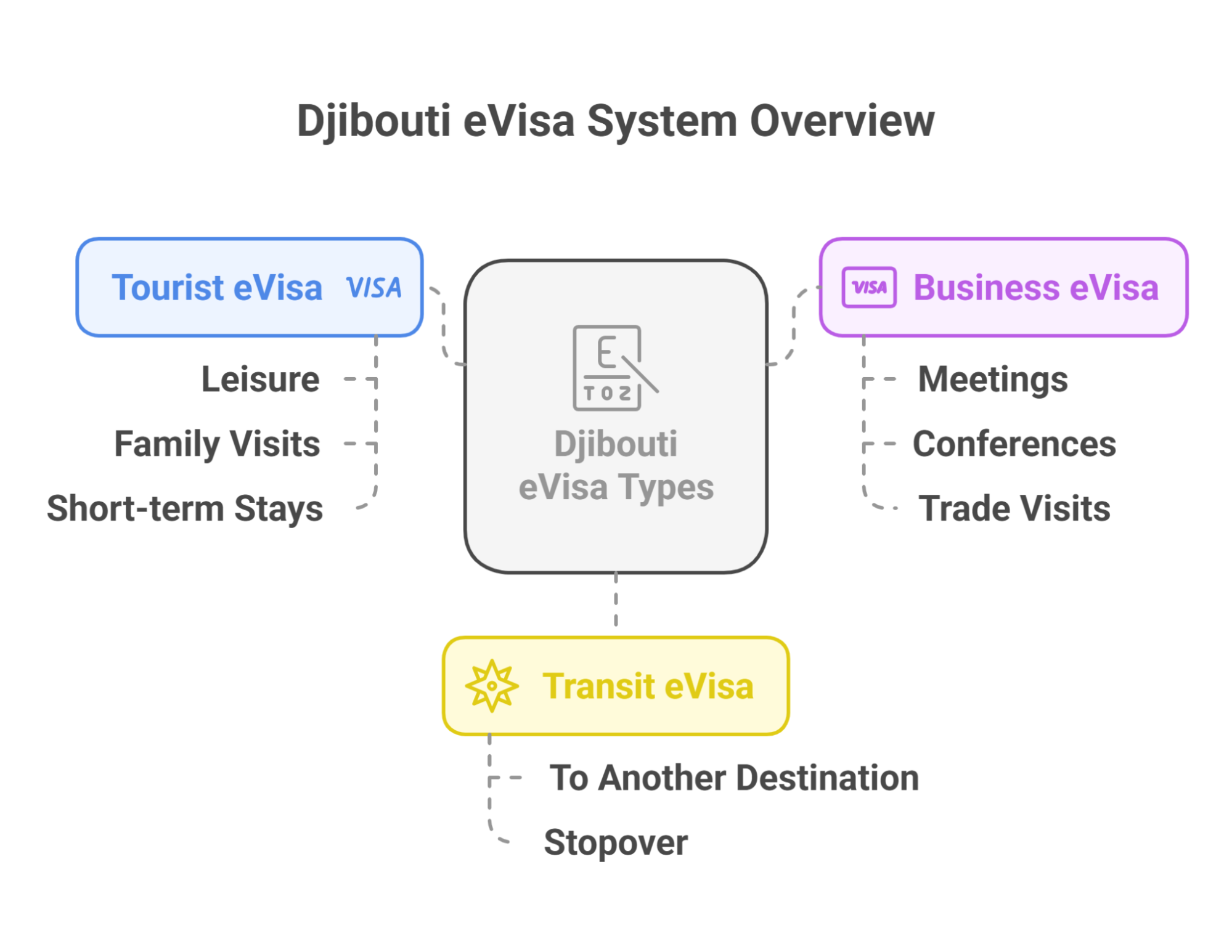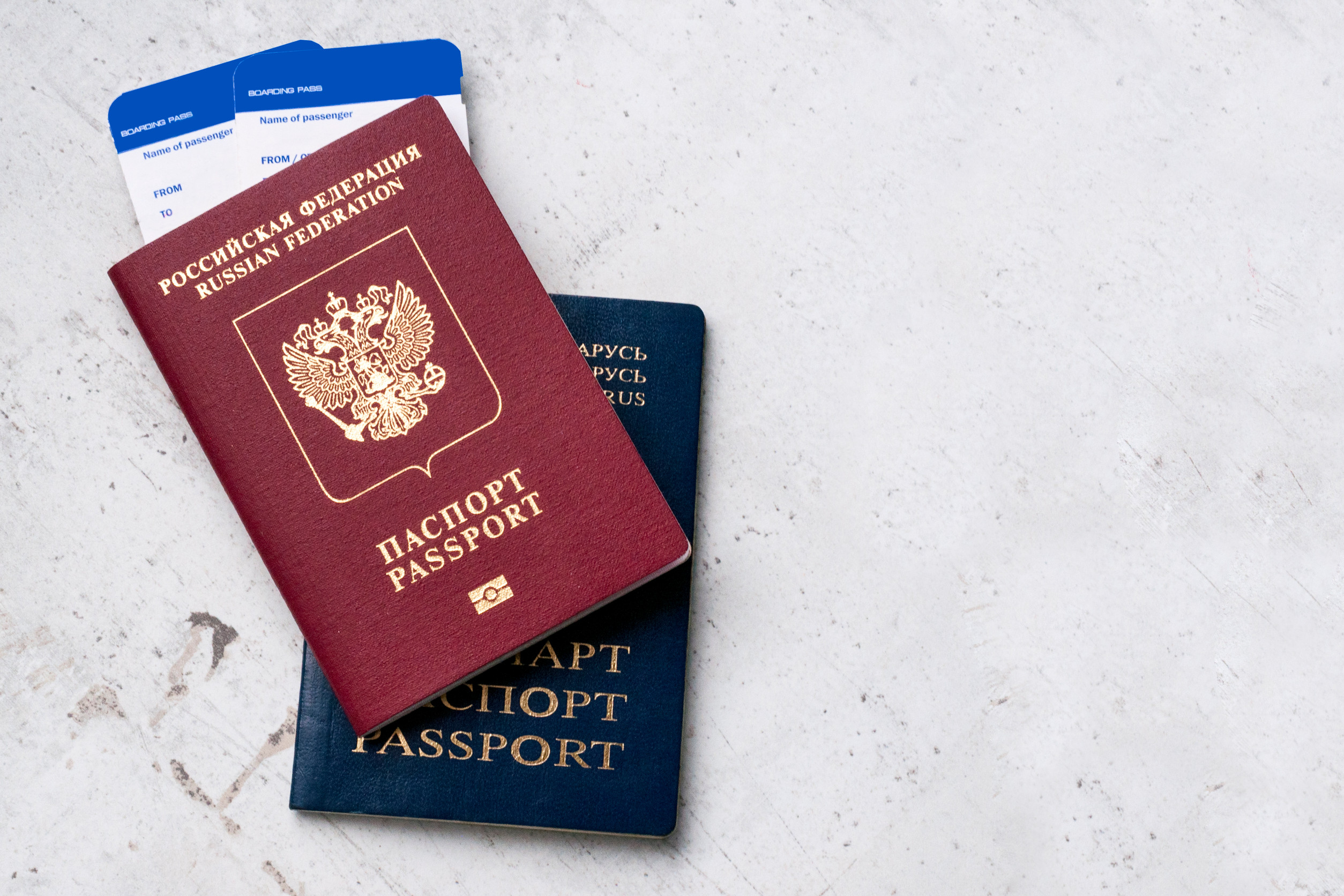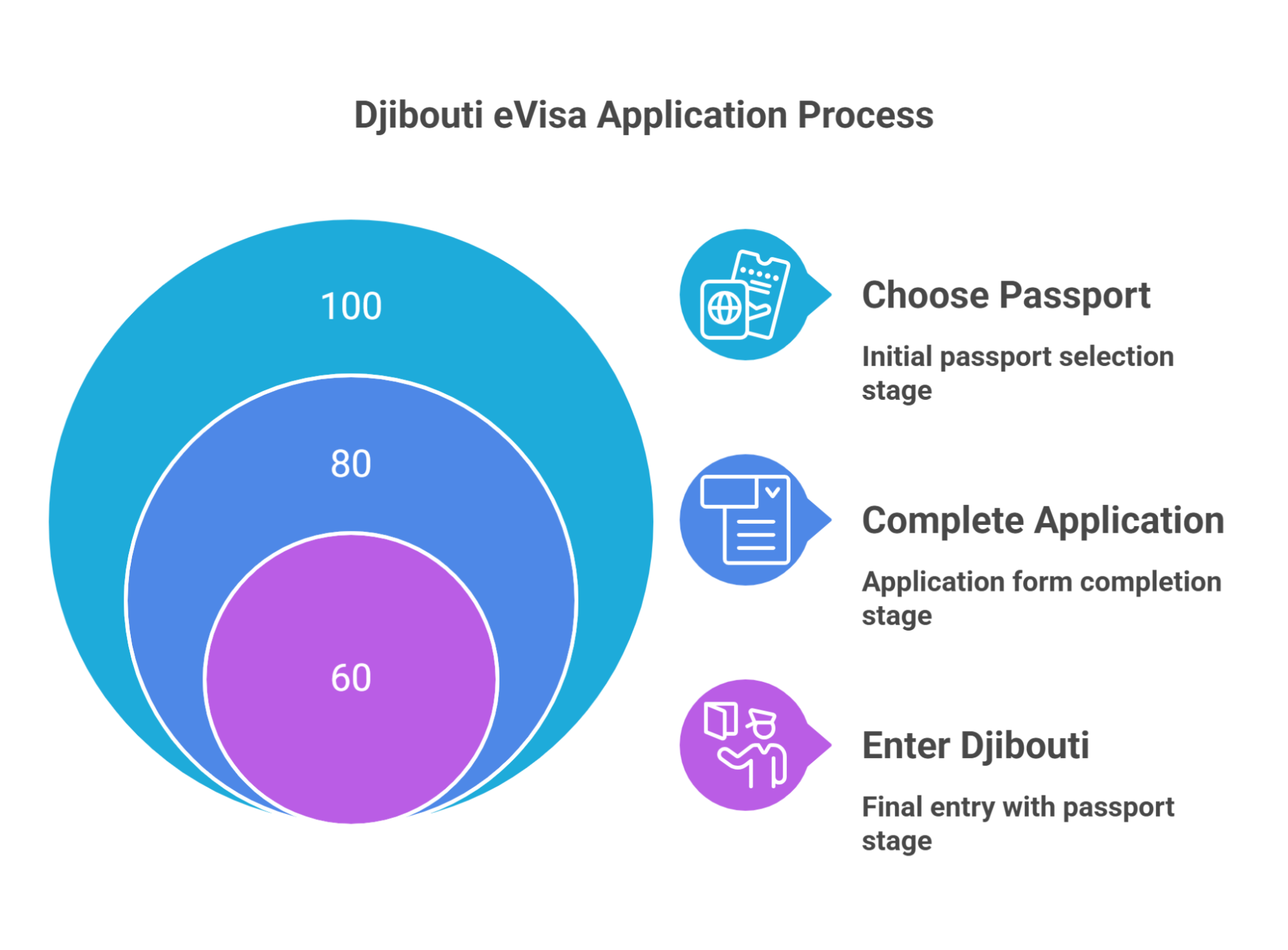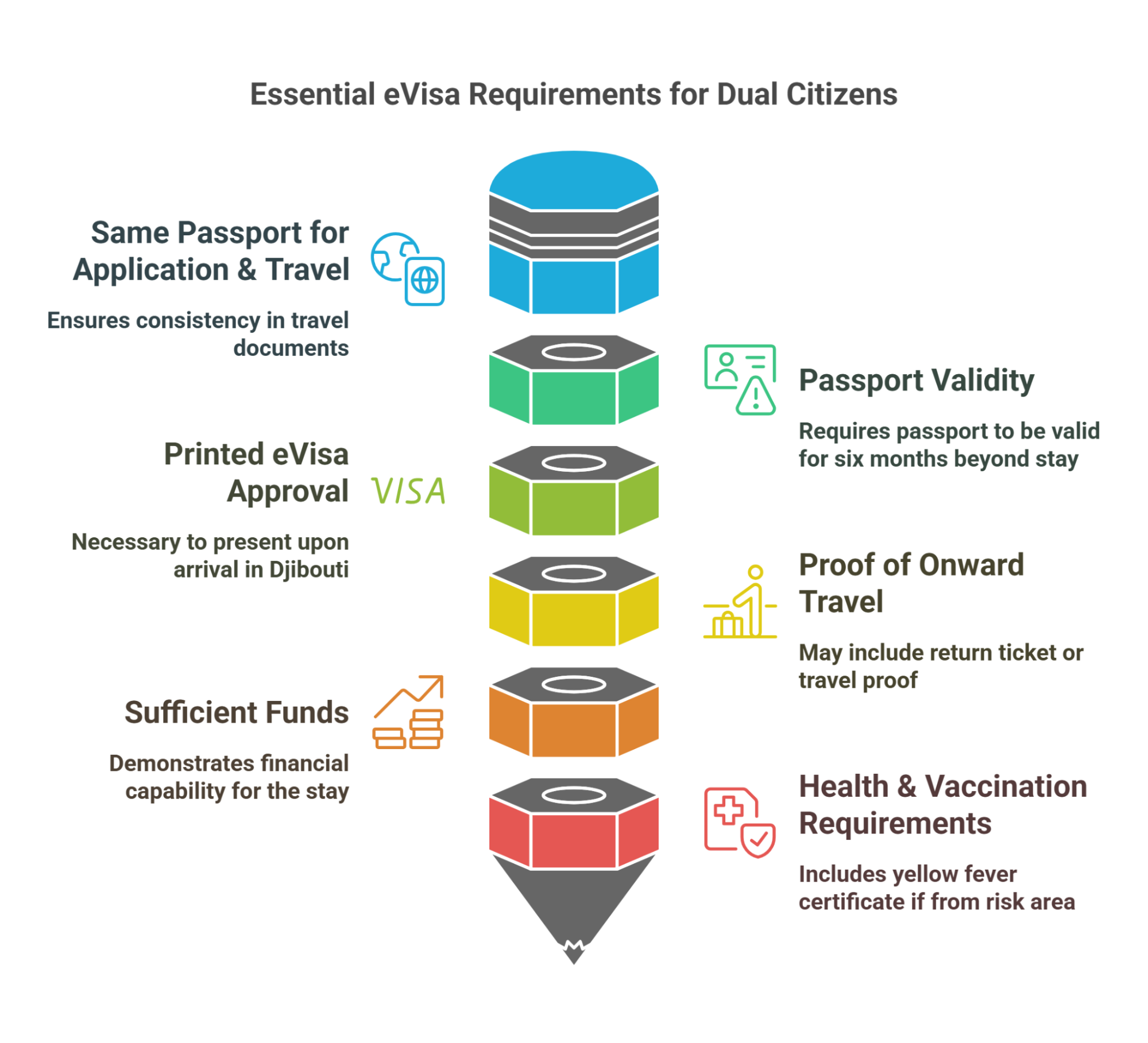Djibouti eVisa for Dual Citizens

Traveling to Djibouti as a dual citizen requires careful planning, especially when applying for an e-Visa. Dual citizenship can offer flexibility, but it also comes with specific visa application challenges, such as choosing the right passport, handling potential discrepancies, and complying with the immigration laws.
Understanding Djibouti’s eVisa System
The Djibouti eVisa is an electronic travel authorization that allows eligible travelers to enter the country for tourism, business, or transit without visiting an embassy.
Types of Djibouti eVisas for Dual Citizens are:
- Tourist eVisa – For leisure, family visits, or short-term stays.
- Business eVisa – For meetings, conferences, or trade-related visits.
- Transit eVisa – For travelers passing through Djibouti to another destination.

Choosing the Right Passport for Your eVisa Application
As a dual citizen, you must decide which passport to use when applying for a Djibouti eVisa. Here’s how to choose:
1. Which Passport Offers Visa-Free Entry or Easier Approval?
Some nationalities require stricter visa procedures than others. Check:
– Djibouti’s visa policies for both nationalities to see which passport offers easier entry.
– If one nationality is visa-exempt, you may not need an eVisa at all.
2. Travel Consistency and Entry/Exit Matching
- Use the same passport for both the eVisa application and travel to avoid confusion at immigration.
- Ensure your arrival and departure flights match the passport used for the eVisa.
3. Residency and Legal Obligations
If you reside in Djibouti or another country, check whether your dual nationality affects visa requirements or residency status.
Djibouti eVisa Eligibility for Dual Citizens

Dual citizens applying for a Djibouti eVisa must ensure they meet the eligibility requirements based on the passport they choose for the application. While Djibouti offers eVisas to many nationalities, the conditions may vary depending on the country of passport issuance.
Key Eligibility Factors for Dual Citizens
- Passport Selection Matters – You must apply with the passport that is eligible for a Djibouti eVisa and use the same one for travel.
- Visa-Free or Visa-Required? – Some nationalities may qualify for visa-free entry, meaning an eVisa may not be necessary. Dual citizens should check if one of their nationalities allows easier access.
- Validity of Passport – The passport used for the eVisa must be valid for at least six months from the date of arrival in Djibouti.
- Entry Restrictions for Certain Nationalities – Some nationalities may require extra documentation or face longer processing times due to additional screening.
- Multiple Citizenship Considerations – If one nationality has stricter travel restrictions, travelers should apply with the passport that provides the smoothest entry.
Djibouti eVisa Application Process for Dual Citizens
Dual citizens applying for a Djibouti eVisa must carefully follow the process to ensure their application is valid. Here are the three key steps:
1. Choose the Correct Passport for Application
- Select one nationality for the visa application.
- Ensure that the passport used for the eVisa matches the one you will use for entry into Djibouti.
- Check visa requirements for both nationalities, as some countries may have different visa policies.
2. Complete the Djibouti eVisa Application Form
- Provide accurate passport details, ensuring they match the selected nationality.
- Upload the required documents, such as a passport scan, photo, and travel itinerary.
- Pay the eVisa fee online and submit the application.
3. Enter Djibouti with the Same Passport
- At immigration, present the same passport used for the eVisa application.
- Ensure your passport has at least six months' validity from your arrival date.
- If questioned about dual nationality, be prepared to clarify your visa-linked passport choice.

Djibouti eVisa Validity and Duration for Dual Citizens
Dual citizens must follow the same validity rules as other travelers when applying for a Djibouti eVisa. However, it’s crucial to ensure that the passport used for the eVisa application remains valid throughout the stay.
– Validity Period: The Djibouti eVisa is typically issued for 14 or 90 days, depending on the visa type selected.
– Single Entry: Most eVisas allow only one entry into Djibouti. If you leave, a new visa is required for re-entry.
– Passport Consistency: Travel with the same passport used for the eVisa to avoid complications at immigration.
If your passport expires before the eVisa validity ends, you may need to reapply with a new passport.
Djibouti eVisa Processing Fee and Time for Dual Citizens

When applying for a Djibouti eVisa, dual citizens should consider both processing time and fees, as these factors vary based on visa type, number of entries, and nationality. While standard processing takes 4 - 7 Working Days , some nationalities may require additional verification, leading to possible delays.
- Processing Time: Typically 4 - 7 Working Days , but delays may occur if extra documents are requested.
- Djibouti eVisa Fees: Costs depend on visa type, travel purpose, number of entries, and nationality.
📌 Tip: Before applying, check the Djibouti eVisa Fee portal for a fee-checking tool and apply well in advance to avoid delays, especially if one of your nationalities is subject to stricter screening.
Common Challenges and How to Avoid Delays
Dual citizens applying for a Djibouti eVisa must be cautious to avoid entry issues. Ensuring consistency between the chosen passport and application details is key to a smooth travel experience. Here are some common issues to avoid during eVisa application:
|
Issue |
Solution |
|
Using Different Passports for eVisa and Travel |
If your eVisa is linked to one passport but you attempt to enter Djibouti with the other, immigration may deny entry. ✔ Always travel with the same passport used for the eVisa application. |
|
Conflicting Personal Information |
Differences in name spelling, date of birth, or passport number between your two nationalities can cause rejections. ✔ Ensure all details match the passport you are using for travel. |
|
Unclear Visa Requirements for One of Your Nationalities |
Some nationalities may require additional documentation or longer processing times. ✔ Research both nationalities’ visa requirements before applying. |
|
Expired or Damaged Passport |
If the passport used for the eVisa expires before travel, your visa becomes invalid. ✔ Renew your passport before applying for an eVisa. |
Entering Djibouti with an eVisa as a Dual Citizen
Dual nationals applying for a Djibouti eVisa must meet specific entry requirements based on the passport they use for travel. It is essential to ensure that all details align with the eVisa application to avoid issues at immigration. Key Entry Requirements for Dual Citizens
✔ Use the Same Passport for Application & Travel – The passport used for the eVisa application must be the same one presented at immigration upon arrival.
✔ Passport Validity – The passport must be valid for at least six months beyond the intended stay in Djibouti.
✔ Printed eVisa Approval – Travelers must carry a printed copy of their eVisa approval to present upon arrival.
✔ Proof of Onward Travel – Some travelers may be required to show a return ticket or proof of onward travel.
✔ Sufficient Funds for Stay – Authorities may ask for evidence of financial means to support the duration of the visit.
✔ Health & Vaccination Requirements – If arriving from a country with a risk of yellow fever, a Yellow Fever Vaccination Certificate may be required.

Can You Use One Passport for eVisa and Another for Exit?
In some cases, dual citizens use one passport for entering and another for exiting Djibouti. While this may work, it is generally not recommended due to:
- Immigration tracking inconsistencies.
- Risk of delays if records don’t match.
- Potential fines or entry denial.
Best Practice: Use the same passport for eVisa, entry, and exit to avoid issues.
Alternative Travel Options for Dual Citizens
Dual citizens may have the advantage of visa-free entry to Djibouti, depending on their second nationality. If one of your passports qualifies for visa exemption, you can skip the eVisa process and travel more easily.
📌 Tip: Before applying for an eVisa, check Djibouti Visa-free Agreements for both of your nationalities to see if you qualify for easier entry.
What to Do If Your eVisa Is Rejected?
Here is what you need to do if your Djibouti eVisa is rejected:
❌ Possible Reasons for Rejection:
- Incorrect passport details (wrong number, mismatched name).
- Unclear supporting documents (blurry scans, missing files).
- Unpaid or failed transaction.
✅ How to Fix It:
- Reapply with corrected details.
- Contact the Djibouti support team for clarification.
- Use an alternative passport if one nationality has stricter visa rules.
How to Successfully Apply for a Djibouti eVisa with Dual Citizenship
Applying for a Djibouti eVisa as a dual citizen is straightforward when you:
– Choose the right passport for easier entry.
– Provide accurate and consistent details in the application.
– Travel with the same passport used for the eVisa.
– Prepare for immigration questions if needed.
By following these steps, dual citizens can avoid complications and enjoy a smooth entry into Djibouti!
Frequently Asked Questions
Yes, but you must choose one passport for the application and use the same passport for travel.
Yes, inconsistencies in name spelling, date of birth, or passport number can lead to rejections. Ensure all details match the passport you are using for travel.
No, you only need to check the eligibility of the passport you intend to use for the application. Some nationalities may require a visa-on-arrival or embassy visa instead.
Your eVisa will become invalid. You must renew your passport and reapply for the eVisa with the new passport details.
No, immigration will only accept the passport that matches your approved eVisa. Always travel with the same passport used for the application.
Conent Disclaimer: While this information was last updated in January 2026, we strongly suggest confirming all travel details with the appropriate governmental agencies, embassies, and airlines.
